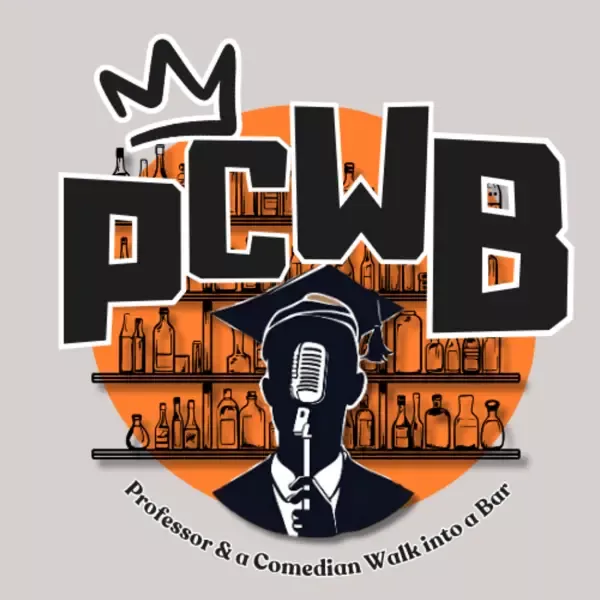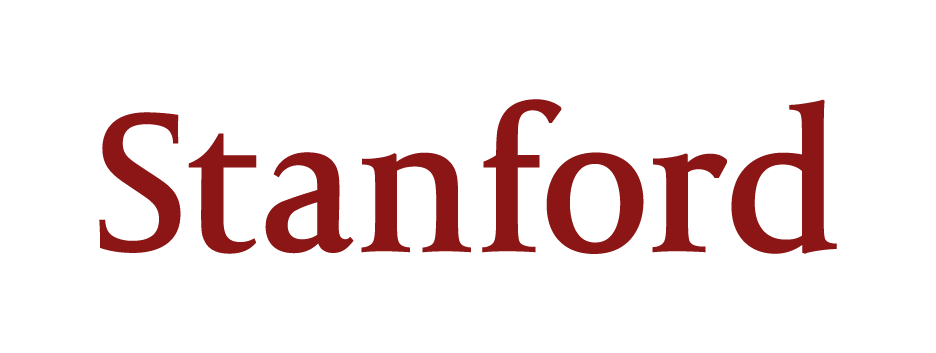No joke! A professor and a comedian walk into a bar.

Listen to PCWB episodes on Apple Podcasts.
Haley: I'm so excited about your podcast. Could you share a little bit about what it is and and where you got the idea for it?
Prof. Vakil: Absolutely! So PCWB stands for “A professor and a comedian walk into a bar.” Really, it's kind of what it sounds like. It's a blending of the academic world and the comedy world. Now, why blend those? I don't know. I think it's fun.
I love a comedy as an art form. The word play, the subversion, the wit, the humor, all of that. I love the working class culture that comedy has. You know, like, you go into an art gallery or to a museum, or to a play, and it's expensive, right? But comedy…Chicago, the Bay Area, LA, almost any college town at this point has comedy at least a couple nights a week, and it's usually pretty affordable. And it's people who are using discourse, using words to make sense out of the world. Sometimes it's deep and heavy and sophisticated, like we aspire to be all the time in academia, and sometimes it's not…It's an experiment. So we're in the early stages of it, but at the heart of it is to make conversations in academia, which can sometimes be heavy, sometimes stale, sometimes inaccessible (maybe I'm being uncharitable to our own field, but at times, it can feel like that)- to bring some levity and some laughter, even in dicey conversations, even in tough conversations, which can get challenging.
Haley: In your first two episodes, you haven't hesitated at all. You've dived right into some of the most controversial topics in higher education in the United States right now. Do you have a prospective audience? Who are you hoping to reach with your show?
Prof. Vakil: That's a great question. I wonder what my co-host and and our producer would say… Really, anyone who's interested in ideas, and likes comedy and also likes research. Right? So you’re like, okay, I want to know what's happening in the world of research and science. Right? Or, I like comedy and I like hearing comedians talk. Then you have a home on our show.
Haley: I love it. But I want to dig in, though. Why do you want people to be interested in educational research?
Prof. Vakil: Not just educational research. All research. But yeah, for sure. Education research, because you know, I have kids and I care about kids, and most people do care about children and the future of children. In my view that's the best outlook on my field of education and the learning sciences. We're thinking about how societies should be cultivating children and taking care of children. In schools, outside of schools, you know, across the family, the home connection. So if there's important research coming out of our discipline that can inform that then I think it should be heard. And you know, just being a parent, I come across other parents who are struggling with all kinds of questions and issues. Whether it's like, you know, questions of social media usage, or what age is the right age, and what does the research say about the impact of social media on teenage and adolescent mental health? Through questions around gender identity and sexuality. Questions around, how do you talk to your kids about race? Questions like, what should my kids be learning in their science class?
But for the podcast as a whole- we started with some people in education, but we definitely are branching out. After we talk today, our 4th one will be recorded later today with someone with expertise, Haley, in a field that you care a lot about: AI and computing.
Haley: So how would you make something like AI, or, like race or gender issues in education… into comedy?
Prof. Vakil: So we're trying to figure that part of it out. But I don't think we're actually doing that. At some point, I thought that too, by the way. So like you're not far afield. It's not as if we're trying to like write jokes about these topics and then feature them on the podcast. You heard the first couple of podcasts, where there's some humor in the conversation, but it's not like the comedians are telling jokes. We're having a conversation. It's more, what does it feel like when you talk to a comedian about criminal justice? Which was our third episode. It was a heavy conversation. We were, you know, maybe less heavy than a seminar at Stanford or Northwestern on on the issue, but definitely not the feel of like a comedy club. It still leans academic. That’s probably my fault. So yeah, we're not inserting comedy into the topics. It's just they're coexisting. And then we're seeing what happens when they coexist.
Haley: What advice would you give to other faculty who are thinking about, or or exploring meaningful ways to engage with with public scholarship?
Prof. Vakil: Oh. I feel little bit underqualified to give advice on the topic. I feel like I'm just playing with it myself. I think that we should make it a habit, those of us inside academia, whether we're graduate students or faculty members, to talk to people outside of our bubble. So for me, I have, you know, a really solid circle of close friends and family members. My parents included, that I talk to. It’s almost like it’s the comedian version of workshopping material. They're always workshopping material, and they do one joke a thousand times. I feel we need to do that with our ideas. It can't just be when we go up to present at a conference with slides. We have to constantly be working on our ideas with a diverse range of people. And then lean into aspects of our personalities and our interests that are good avenues for making ideas accessible. The world of research and science connects to so many things. I think there's a lot of ideas that live in academia and need to breathe, and need to be in other spaces. The podcast, you know, that's just one medium. There are so many other ways to do it.
Haley: Yeah. And you know, from a meta perspective, you're kind of doing the job of an educator, which is, of course, what we study. How do we share knowledge in an effective way? The mission of the Public Scholarship collaborative here at Stanford is to highlight research on equity in education. What does equity in education mean to you?
Prof. Vakil: Oh, man! Haley! Save the hardest for last. I think my starting point is, I'm thinking about questions of power. I think about, on a personal level, my own story. Access to education for my parents. And I put emphasis on that, because I know that term is loaded and contested in academia. But access was huge in my own life story. I was 3 years old. The war was raging between Iraq and Iran, backed by the United States, of course, we know the history there. And a million people lost their lives, and generations were lost. I'm very, very privileged. I have some survivor’s guilt, actually. I have family members, like cousins of mine, who didn't leave, and they had very different trajectories than I did. And so it's about power. It's about opportunity. But it's about other things as well. Right? It's about like controlling the terms of knowledge production. And when we're talking about equity in education, especially in a country like the U.S that’s so culturally and racially diverse. It's thinking about like, who's invited, who's value systems and perspectives and cultural practices are respected and cared about.
Haley: And here we are trying to come up with a 1 sentence mission. So how do I condense that down? Just just kidding. Is there anything else that you'd like to share about your experience with public scholarship?
Prof. Vakil: I love academia for its freedom of thinking and freedom of movement... But we have to have fun with the work that we're doing. This is an attempt for me to follow some instincts and have fun, and hopefully, the podcast does a service in terms of public scholarship.
Haley: Well, it's already doing that. Thank you so much for talking to me.
Sepehr Vakil is an associate professor of Learning Sciences in the School of Education and Social Policy at Northwestern University. Read his recent article about comedy in academia.



